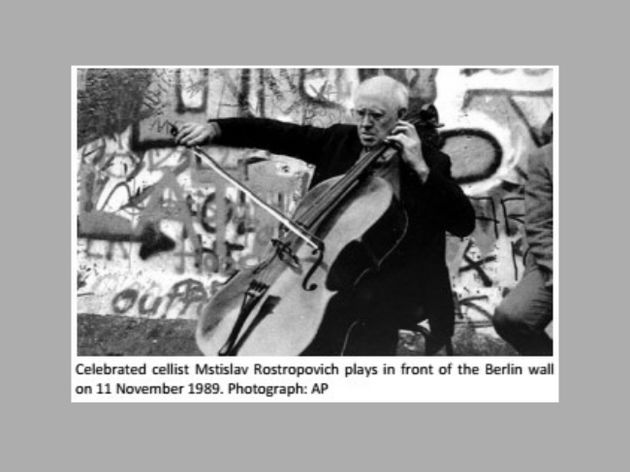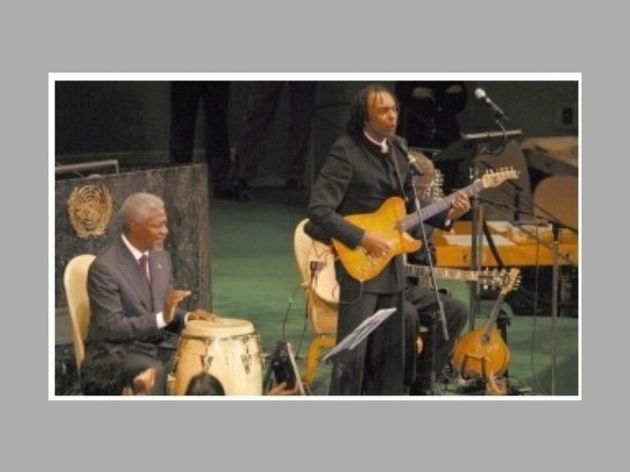Reported speech exercícios
O reported speech (discurso indireto) é utilizado na língua inglesa para contar algo que foi dito por alguém, sem reproduzir exatamente as mesmas falas.
É muito comum vermos questões com reported speech em provas de vestibulares, do Enem e até mesmo de concursos públicos.
Aqui você encontra uma série de exercícios para praticar e aprender de uma vez por todas como o discurso indireto é utilizado em inglês.
Questões comentadas
1. (COSEAC/2018)
TEXT 1 below, retrieved and adapted from https://chroniclingamerica. loc.gov/lccn/sn83035487/1851-06-21/ed-1/seq-4/ on July 9th, 2018.
Text 1
Women’s rights convention – Sojourner Truth
One of the most unique and interesting speeches of the convention was made by Sojourner Truth, an emancipated slave. It is impossible to transfer it to paper or convey any adequate idea of the effect it produced upon the audience. Those only can appreciate it who saw her powerful form, her whole-souled, earnest gesture, and listened to her strong and truthful tones. She came forward to the platform and addressing the President said with great simplicity:
"May I say a few words?" Receiving an affirmative answer, she proceeded: I want to say a few words about this matter. I am a woman's rights. I have as much muscle as any man and can do as much work as any man. I have plowed and reaped and husked and chopped and mowed, and can any man do more than that? I have heard much about the sexes being equal. I can carry as much as any man, and can eat as much too, if I can get it. I am as strong as any man that is now. As for intellect, all I can say is, if a woman has a pint, and a man a quart -- why can't she have her little pint full? You need not be afraid to give us our rights for fear we will take too much; -- for we can't take more than our pint will hold. The poor men seem to be all in confusion, and don't know what to do. Why children, if you have woman's rights, give it to her and you will feel better. You will have your own rights, and they won't be so much trouble. I can't read, but I can hear. I have heard the bible and have learned that Eve caused man to sin. Well, if a woman upset the world, do give her a chance to set it right side up again. The Lady has spoken about Jesus, how he never spurned woman from him, and she was right. When Lazarus died, Mary and Martha came to him with faith and love and besought him to raise their brother. And Jesus wept and Lazarus came forth. And how came Jesus into the world? Through God who created him and the woman who bore him. Man, where was your part? But the women are coming up blessed be God and a few of the men are coming up with them. But man is in a tight place, the poor slave is on him, woman is coming on him, he is surely between a hawk and a buzzard.
Reference: Robinson, M. (1851, June 21). Women’s rights convention: Sojourner Truth. Anti-slavery Bugle, vol. 6 no. 41, Page 160.
Question must be answered by looking at the following sentence from Text 1:
I have as much muscle as any man, and can do as much work as any man.
If you were to report what Sojourner said instead of direct quoting her, you would say that:
a) she said that she had had as much muscle as any man and she could have done as much work as any man.
b) she said that she had as much muscle as any man and she could do as much work as any man.
c) she spoke that she has as much muscle as any man and she could do as much work as any man.
d) she said that she had as much muscle as any man and she can do as much work as any man.
e) she told that she had as much muscle as any man and she could do as much work as any man.
2. (Prefeitura do Rio de Janeiro-RJ/2017)
Based on text 2, an adapted forum discussion, answer question below.
Dianne Bell
I have started teaching in a language school suggesting no books to teach except for some magazines. These show the framework what should be worked on, for example, countability and that’s it. When it was offered I accepted the job easily because it seemed challenging and at the same time simple but now I’m out of reliable materials. Please help me out in what ways I can find materials for all the suggested frameworks.
Comments
Mila Junior and Senior Teacher
Posted on 02/22/2015
What exactly are you supposed to be teaching (i.e., conversation, grammar, business English, etc.)? Can you give more examples of the “frameworks”? If there are no books or resources, it sounds like the school wants you to do conversation classes. These can be easy to prepare if you tell the students to come prepared with a topic to discuss. Then, you can assist them with keeping a conversation going, asking questions, giving opinions, etc.
Flore
Secondary Teacher
Posted on 01/07/2015
Hi, I think it really does depend on the students and the level you are teaching to. I have found a lot of online resources are useful, especially news articles. If you just type in “Free online English lessons” or something similar you are bound to find resources. I had to teach like that once. They give you a book with a list of what you should be teaching in each lesson but nothing else. The teacher has to make the lesson up out of thin air each time, and it’s pretty time-consuming.
Jake
Science Educator
Posted on 11/22/2015
There are so many other resources out there for teachers to use, online and off, that teaching without textbooks is becoming more and more acceptable including websites, iPod lectures and field trips — that will encourage you to toss out your textbooks. Before you can toss out the textbook and replace it with technology tools, you’ll need to understand how your students — whatever their age — respond to and work with technology.
(Adapted from https://www.englishclub.com/)
Mila’s sentence “Can you give more examples of “frameworks’?” could be written in reported speech as:
a) She wondered whether more examples were possible
b) She asked for more examples of frameworks
c) She inquired into Dianne’s ability to exemplify
d) She asked if Jake were able to provide examples
3. (FGV/2016)
TEXT I
How music is the real language of political diplomacy
Forget guns and bombs, it is the power of melody that has changed the world
Marie Zawisza
Saturday 31 October 2015 10.00 GMT
Last modified on Tuesday 10 November 201513.19 GMT

An old man plays his cello at the foot of a crumbling wall. The notes of the sarabande of Bach’s Suite No 2 rise in the cold air, praising God for the “miracle” of the fall of the Berlin Wall, as Mstislav Rostropovich later put it. The photograph is seen around the world. The date is 11 November 1989, and the Russian virtuoso is marching to the beat of history.
Publicity stunt or political act? No doubt a bit of both – and proof, in any case, that music can have a political dimension. Yo-Yo Ma showed as much in September when the cellist opened the new season of the Philharmonie de Paris with the Boston Symphony Orchestra. As a “messenger of peace” for the United Nations, the Chinese American is the founder of Silk Road Project, which trains young musicians from a variety of cultures to listen to and improvise with each other and develop a common repertoire. “In this way, musicians create a dialogue and arrive at common policies,” says analyst Frédéric Ramel, a professor at the Institut d’Études Politiques in Paris. By having music take the place of speeches and peace talks, the hope is that it will succeed where diplomacy has failed.[…]
Curiously, the study of the role of music in international relations is still in its infancy. “Historians must have long seen it as something fanciful, because history has long been dominated by interpretations that stress economic, social and political factors,” says Anaïs Fléchet, a lecturer in contemporary history at the Université de Versailles-St-Quentin and co-editor of a book about music and globalisation.
“As for musicologists,” she adds, “until quite recently they were more interested in analysing musical scores than the actual context in which these were produced and how they were received.” In the 1990s came a cultural shift. Scholars were no longer interested solely in “hard power” – that is, in the balance of powers and in geopolitics – but also in “soft power”, where political issues are resolved by mutual support rather than force. […]

Gilberto Gil sings while then UN secretary general Kofi Annan plays percussion at a September 2003 concert at the UN headquarters honouring those killed by a bomb at a UN office in Baghdad a month earlier. Photograph: Zuma/Alamy
Since then, every embassy has a cultural attaché. The US engages in “audio diplomacy” by financing hip-hop festivals in the Middle East. China promotes opera in neighbouring states to project an image of harmony. Brazil has invested in culture to assert itself as a leader in Latin America, notably by establishing close collaboration between its ministries of foreign affairs and culture; musician Gilberto Gil was culture minister during Luiz Inácio Lula da Silva᾽s presidency from 2003 to 2008. He was involved in France’s Year of Brazil. As Fléchet recalls, “the free concert he gave on 13 July, 2005 at the Place de la Bastille was the pinnacle. That day, he sang La Marseillaise in the presence of presidents Lula and Jacques Chirac.” Two years earlier, in September 2003, Gil sang at the UN in honour of the victims of the 19 August bombing of the UN headquartes in Baghdad. He was delivering a message of peace, criticising the war on Iraq by the US: “There is no point in preaching security without giving a thought to respecting others,” he told his audience. Closing the concert, he invited then UN secretary general Kofi Annan on stage for a surprise appearance as a percussionist. “This highly symbolic image, which highlighted the conviction that culture can play a role in bringing people together, shows how music can become a political language,” Fléchet says.
(adapted from http://www.theguardian.com/music/2015/oct/31 /music-language-human-rights-political-diplomacy)
The correct form of reporting the sentence “‘…musicians create a dialogue and arrive at common policies,’ says analyst Frédéric Ramel” is:
a) Analyst Frédéric Ramel said that musicians created a dialogue and arrived at common policies;
b) Analyst Frédéric Ramel says that musicians created a dialogue and would arrive at common policies;
c) Analyst Frédéric Ramel would say that musicians created a dialogue and would arrive at common policies;
d) Analyst Frédéric Ramel had said that musicians had created a dialogue and arrived at common policies;
e) Analyst Frédéric Ramel has said that musicians are creating a dialogue and arriving at common policies.
4. (Unirio/2000) "How would you describe yourself?" is a direct question. Complete the sentence below with the appropriate indirect question form.
Daniel Hart asked an African-American teenager______________________
a) how to describe it
b) how to describe yourself
c) how he would describe himself
d) to describe himself
e) to describe yourself
5. (Fatec/2002) Considere a frase "It's a perfect setup for heart disease and diabetes, says Stampfer." Assinale a alternativa em que a transposição dessa frase para o discurso indireto está correta, completando a frase a seguir.
Stampfer says ______________________________
a) it was a perfect setup for heart disease and diabetes.
b) it is a perfect setup for heart disease and diabetes.
c) it has been a perfect setup for heart disease and diabetes.
d) it had been a perfect setup for heart disease and diabetes.
e) it will be a perfect setup for heart disease and diabetes.
6. (Mackenzie) - They said, "Do parents know their kids?" in the Reported Speech would be:
a) They said that did parents know their kids?
b) They asked that parents know their kids.
c) They said that parents knew the kids.
d) They argued that do parents know their kids.
e) They asked if parents knew their kids.
7. (UFRGS/1998) - Considere a frase: If you don’t feed your Tamagotchi, it will die. Escolha a melhor opção para reescrevê-la, começando com
She told me that_________________
a) if I won’t feed my Tamgotchi, it would die.
b) if you didn’t feed your Tamagotchi, it had died.
c) if I didn’t feed my Tamagotchi, it would have died.
d) if I didn’t feed my Tamagotchi, it would die.
e) if you haven’t fed your Tamagotchi, it will have died.
8. (OBJETIVO-SP) The indirect speech of a man to a girl: "What is your father's job? is
a) A man asked a girl what was her father's job.
b) A man asked a girl her father was job.
c) A man asked a girl what her father's job was.
d) A man asked a girl was what her father was job.
e) A man asked a girl what hers father's job was.
9. (UESC/2007) I expected it to work, but not so well. (l. 9-10)
In Reported Speech, this sentence becomes: Rossano Amadelli said that he _______________ it to work, but not so well.
The verb tense that completes the blank correctly is in alternative
a) had expected.
b) has expected.
c) have expected.
d) was expecting.
e) would expect.
10. (Escola Naval/2009) Mary saw her boyfriend with another girl and they had a quarrel. She shouted: "Don't come here anymore!"
Which alternative best reports what she said?
a) She said her boyfriend do not come here anymore.
b) She told to her boyfriend not to come here anymore
c) She said to her boyfriend to not to go there anymore.
d) She told her boyfriend not to come there anymore
e) She told her boyfriend not to go there anymore.
11. (Escola Naval/2010) Mary saw James, her doctor, two days ago.
James said: "See me tomorrow again."
Which alternative best reports what he said?
a) He said Mary will see him tomorrow.
b) He told to her to see him the day after.
c) He said to her to see him tomorrow.
d) He told her to see him the day after.
e) He told her to see him the day after tomorrow.
12. (EsFCEx/2009) Choose the option that correctly completes the sentence:
I arrived home on foot and my husband asked me where ________________
a) is my car.
b) my car was.
c) was my car.
d) my car is.
e) is your car?
Leia também:
Reported Speech (discurso Indireto em Inglês)
Interpretação de texto em inglês com gabarito (Enem)
MUNIZ, Carla. Reported speech exercícios. Toda Matéria, [s.d.]. Disponível em: https://www.todamateria.com.br/reported-speech-exercicios/. Acesso em:



